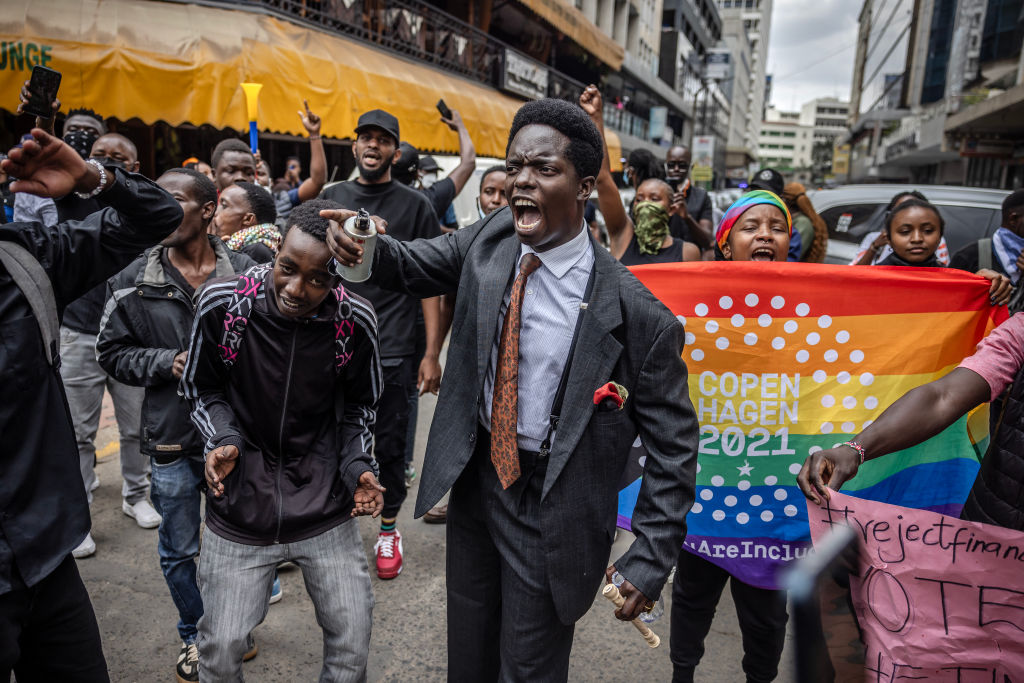ADF STAFF
Violent extremism from the Sahel has been spreading closer to Ghana’s northern border over the last five years.
Mataru Mumuni Muqthar, executive director of the West Africa Centre for Counter-Extremism (WACCE) in Accra, said that while there have been no attacks, the area is “much more exposed than before.”
“How soon do we expect attacks locally? We’re not sure, but [the threat] is increasing due to marginalization along ethnic lines, especially the Fulani ethnic group,” Muqthar told ADF. “There are other ethnic groups, but it’s more pervasive with the Fulani, more intense.”
Muqthar also said there has also been evidence of recruitment efforts by extremist organizations affiliated with the Islamic State group to recruit young people in Ghana and other coastal West African states since 2015.
“At the moment, we don’t have evidence of active recruitments but we suspect it is going on in the border regions of coastal states where they increasingly engage in attacks,” Muqthar said. Terrorists and extremist organizations now use the Internet and mobile technology to “radicalize and recruit young people,” he added.
Due to concerns that violent extremist groups will exploit young people, WACCE in November 2023 launched the Building Resilience Against Violent Extremism through Social Cohesion in Northern Ghana, or BRAVE, project.
“We engage young people to teach them what extremism is about and what factors can lead them to be radicalized but it is a very complex, nuanced threat,” Muqthar said. “We rely on local constructs to get young people to engage amongst themselves to avoid extremism.”
Factors that may drive young people, including adolescents and children, toward violent extremism include unemployment and underemployment, rising living costs, lack of public services, and the absence of the state in areas experiencing ethnic and political strife. These are all critical issues as the number of young people on the continent continues to increase.
Africa’s population of people ages 15 to 35 in 2018 was estimated to be 453 million. According to the African Union, the number of people in that age range is expected to grow to more than 1 billion by 2063.
In most West African countries, the sum of the unemployment and underemployment rates is more than 50%, according to the African Development Bank. Underemployed means not having enough paid work or not doing work that makes full use of a person’s abilities. In recent months, large number of young people have protested in Nigeria and Kenya at their lack of economic opportunities.
During a recent webinar hosted by the Africa Center for Security Studies (ACSS) titled “The Role of Youth in Preventing and Responding to Violent Extremism in Africa,” Muqthar stressed that such responses require a calculated approach. The ACSS defined young people as professionals 35 and younger.
“People who work in this space need to be deliberate in educating young people to understand that the solution to bad civilian government is not military government, it’s better civilian government,” Muqthar said. “The way to do that is to sustain the conversation within the youth space.”
Officials are making similar efforts in other parts of Africa, where 60% of the population is under 25. The Kenya Community Support Center (KECOSCE), for example, has established almost 30 centers that train more than 20,000 young people to effectively participate in governance, protests and peaceful demonstrations. Analysts view young people in the country’s Muslim communities as being particularly vulnerable to violent extremism.
“We believe that youth must become activists and raise their voice and ask those hard questions to government,” Phyllis Muema, executive director of the KECOSCE, said during the ACSS webinar. “Many times, the demonstrations staged by young people in Africa are peaceful until the state agencies make them violent.”
Achaleke Christian Leke, executive director of Local Youth Corner Cameroon, said it is critical that young people are armed with evidence-based information about violent extremism.
“If people see the evidence, they believe it more,” Leke said during the webinar. “In an era of fake news, it is time for our leaders to face their people. Time has passed when young people are asking to respond to them face to face.”
Speaking to the United Nations Educational, Scientific and Cultural Organization, Leke said he believes the role of young people in preventing and responding to violent extremism is underestimated.
“We have the abilities to convince our peers and develop solutions to the drivers of [violent extremism],” he said. “We make [up the] majority of the population in our countries across the world, though it is not just about the number, but that zeal, burning passion, and ability to do things the way things are supposed to be done. That is one of the things that guarantees how strategic young people are in building peace.”

